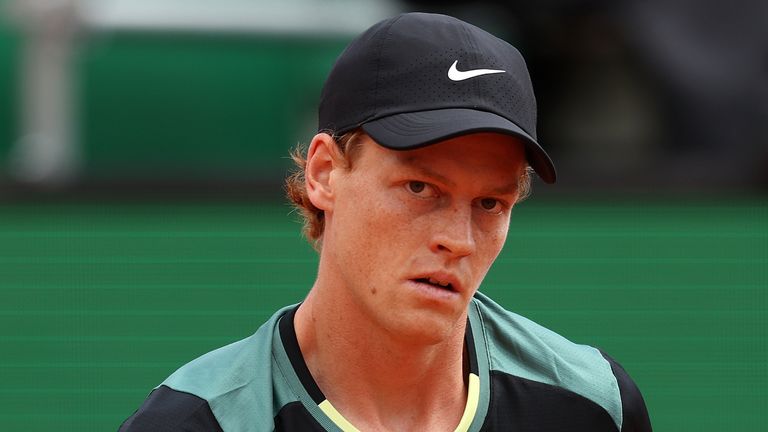The greatest threat to Jannik Sinner is unveiled, and it’s neither Novak Djokovic or Carlos Alcaraz but rather…
In the world of tennis, where rivalries and player matchups often dominate headlines, it might come as a surprise to
discover that the greatest threat to Jannik Sinner’s ascent to the top of the sport is not the well-established stars like
Novak Djokovic or Carlos Alcaraz. Instead, the most significant challenge could come from factors that are less
visible but potentially more impactful: injury and burnout.
Jannik Sinner, a rising star in the tennis world, has already made impressive strides with his powerful baseline game
and impressive athleticism. However, as he continues to climb the ranks and compete at higher levels, the pressures
and demands of professional tennis increase exponentially. This creates a critical risk factor that could undermine
his career trajectory: physical injuries and mental burnout.
**Injury Concerns**
Tennis is a physically demanding sport that requires explosive movements, rapid changes in direction, and
significant repetitive strain on the body. For players like Sinner, who rely on speed and power, the risk of injury is
heightened. Despite his youth and fitness, the stress placed on joints, muscles, and tendons can lead to conditions
such as stress fractures, tendinitis, or more severe issues like torn ligaments.
Historically, even the most promising players have faced setbacks due to injury. For instance, Juan Martin del Potro,
once a formidable force, has struggled with wrist injuries throughout his career. Similarly, players like Alexander
Zverev have faced injuries that temporarily derailed their progress. For Sinner, managing this risk is crucial. His
team must be vigilant about his physical health, ensuring that he follows a balanced training regimen and adheres to
recovery protocols to minimize the risk of long-term damage.
**Burnout**
Another significant threat to Sinner’s career is burnout, which can result from the intense pressure of constant
competition, travel, and the demands of maintaining peak performance. The grind of the tennis circuit, with its
grueling schedule and high expectations, can take a toll on a player’s mental and emotional well-being. Burnout can
manifest as fatigue, loss of motivation, and even performance declines, which could stymie Sinner’s growth and
impact his career trajectory.
The mental health of athletes is increasingly being recognized as a critical component of their overall performance.
Sinner, like his peers, faces the pressure of maintaining form, managing expectations from fans and media, and
dealing with the isolation that often accompanies a professional sports career. Ensuring that he has a support
system, including mental health professionals, and taking necessary breaks to recharge can help mitigate the risks of
burnout.
**Balancing Ambition with Well-Being**
To counter these threats, Sinner’s approach to his career will need to be multifaceted. He must balance his ambition
with a pragmatic approach to managing his health. This involves not only physical conditioning and injury
prevention but also mental resilience and stress management.
In practical terms, this might mean working closely with a team of physiotherapists and sports psychologists, as well
as implementing a thoughtful tournament schedule that allows for adequate rest. Additionally, integrating practices
like mindfulness or mental conditioning into his routine could help him navigate the pressures of high-stakes
competition.
In conclusion, while Jannik Sinner faces formidable opponents on the court, his greatest threat may come from
within, manifesting as physical injuries or mental burnout. Addressing these challenges proactively will be key to
sustaining his career and achieving his full potential. As he continues to rise in the tennis world, maintaining a
balanced approach to both his physical and mental well-being will be crucial for his long-term success.

